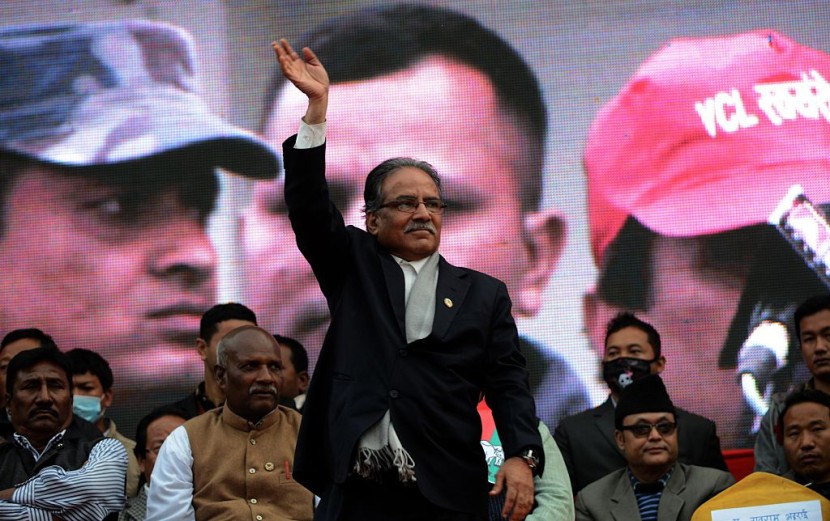
Nepal's former guerilla chief, Pushpa Kamal Dahal, has been appointed the country's prime minister as the country seeks to improve relations with China and India.
The move also signals a potential foreign policy shift in the Himalayan nation that is caught between international powers. The 68-year-old is the leader of the Communist Party of Nepal (Maoist Center) and finished third in the Nov. 20 elections behind sitting Prime Minister Sher Bahadur Deuba of the Nepali Congress and former Prime Minister K.P. Sharma Oli.
Nepal's Prime Minister
While many considered Deuba as pro-India and pro-America, Prachanda and Oli, who are the heads of warring Communist Party factions, are seen as pro-China. Following the November election, none of the candidates had enough votes to form a government outright.
However, after several weeks of backroom intrigue that culminated on Sunday with Prachanda, who was seen as a potential kingmaker, emerged victorious with support from Oli, who has become his comrade, as per the Washington Post.
In 1996, Prachanda waged a guerilla insurgency that resulted in the death of more than 17,000 and allegations of war crimes by government forces and rebels. He later signed a peace deal in 2006 and ushered the Maoists into the political mainstream. He had already served as Nepal's prime minister twice, in 2008 and 2016, both of which only lasted less than a year.
While the country has seen a carousel of 13 prime ministers in the last 16 years, the recent election has revived a geopolitical question with heightened implications in an era of major power rivalries: Would Nepal form better relations with China or India and the United States?
According to CNN, Prachanda will head the new government of Nepal for the first half of the five-year term with the support of the opposition Communist Unified Marxist-Leninist (UML) party and some other smaller groups, said party officials.
Former Guerilla Chief's New Government
In an interview, an aide to President Bidhya Devi Bhandari, Tika Dhakal said that Prachanda was appointed to be the prime minister and commands the support of a big majority of parliament. He will replace Deuba, who will step down in 2025 to make way for the UML to take over the office.
The general secretary of Prachanda's Maoist Center Party, Dev Gurung, said that the situation was an understanding. He added that the remaining work of distribution of key other posts and ministries was still being ironed out.
The Maoist Center party won 32 seats in the 275-member House of Representatives and the UML has 78 seats. The remaining which is required for the 138-majority will be controlled by smaller groups.
Analysts have argued that Prachanda was unlikely to provide the country with stability due to many coalition partners. Furthermore, he faces serious economic challenges that could hamper his efforts of recovery.
Currently, Nepal's inflation is more than 8%, which is the highest seen in the last six years and the country faces dwindling foreign exchange reserves. This comes with an increasing dependence on imports of basic goods from other nations, Al Jazeera reported.








